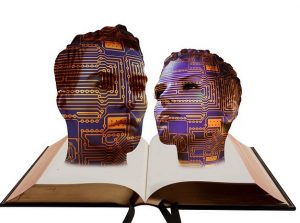Writing a Book With the Help of Artificial Intelligence
Artificial Intelligence is all there is on the mind of people today, well, apart from memes, social media and betting with the ladbrokes promo code. People talk about AIs and the fact that our world is going to be changed once they become advanced enough. AIs have done a lot of things in the past couple of decades, like reducing the human factor in many factories, where that was possible. Many machines do simple labor jobs now, making the human part almost unnecessary.

But what about creativity? Will machines be able to become creative at some point? Will they be able to write a book or win an award? To one of those questions, an answer was already given as a book was already written by an AI.
1 the Road – AI
This book was written by an AI which traveled the United States, with a novelist, Ross Goodwin. The aim was for Ross to emulate Jack Kerouac’s On the Road, he traveled with a laptop connected to various sensors like cameras, microphones and GPS devices. While on the road from New York to New Orleans, the AI picked up on stuff and wrote a book. The book is sixty million words long.

That is a large book, by all means, but what about its content? The content is neither here nor there. It is obvious that a machine wrote it as you have frequent usage of GPS coordinates to describe items. The book opens up with “It was nine seventeen in the morning and the house was heavy”. The time is always very specific yet some descriptions are rather vague and borderline creative, to the point of not being able to understand a thing.
Ross Goodwin – The Brain Behind the Brain
Ross Goodwin worked as a ghostwriter for Obama’s administration and works with Google on their Artists and Machine Intelligence programs, whose aim is to bring engineers and artists together to bring to life projects using Machine intelligence.
The trip and project was sponsored and backed by family and friends, rather than a corporation. The goal of the experiment, according to Goodwin, was to learn how machines create words. It is also a warning as some patterns in the text may likely stay even after sophistication and improvement. These patterns can help recognize a machine-written text.
The Future of AIs and Literature

The future of AIs and literature is currently just a mix of precise descriptions and complete vagueness. AIs have a long way to go before they are able to produce a piece of literature which will resemble human art. It might be art to an AI, but humans have lots of trouble comprehending frequent usage of GPS coordinates.
An AI has already written a book and it was received poorly in the world of literature. In the world of machine learning, it is definitely something that will lead to new discovering. The mora data, the better. Data is required for machines to learn.



